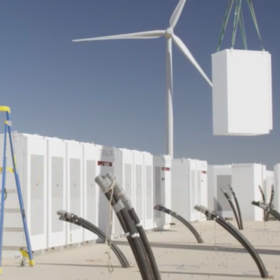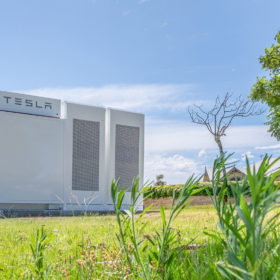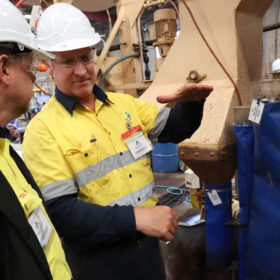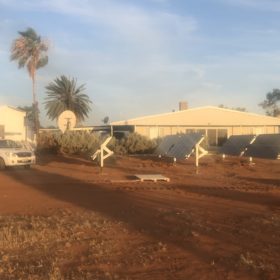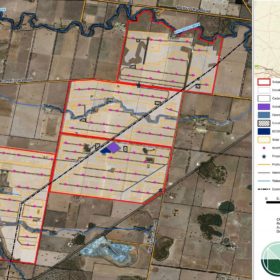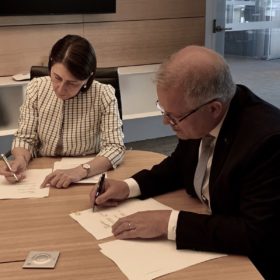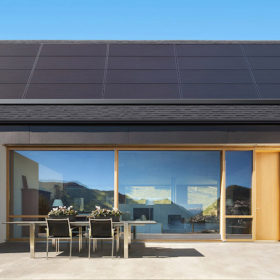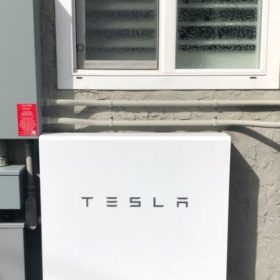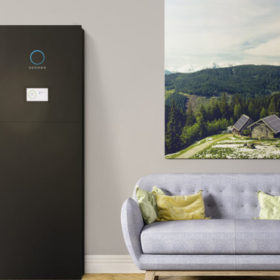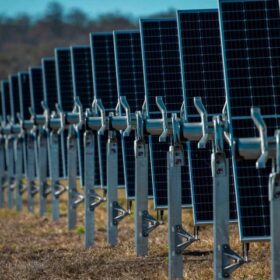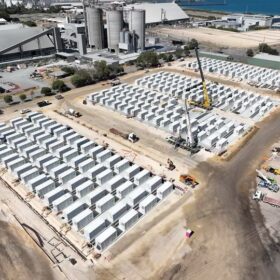Big batteries earn $20 million over three months
Against the backdrop of extreme heat, generator, and transmission line outages and intense bushfires, revenues for grid-scale batteries on the National Electricity Market (NEM) have been trending upwards.
Perth’s first utility-scale community battery
Synergy and Western Power’s PowerBank trial has reached another milestone with the integration of a utility-scale community battery into Perth’s major metropolitan network.
Australian Vanadium boosted by federal grant
Perth-based Australian Vanadium has received another boost from the Federal Government with the award of a further $1.25 million research and development grant to fund research into improving vanadium processing.
Adjudication: Windlab to bear costs of delays at Kennedy solar-wind-battery park
The developers of the Kennedy Energy Park will have to pay more than $7.5 million in variation claims and delay costs pursuant to an adjudication decision which is likely to raise concerns in the Australian renewable energy sector.
Solar and batteries slash costs at off-grid WA cattle station
With the help of solar PV and zinc-bromine batteries, a cattle station located in the dry Murchison region northeast of Geraldton will save as much as $10,000 a year in diesel costs.
Neoen’s Culcairn Solar Farm nearing construction
Neoen’s 400 MW Culcairn Solar Farm and energy storage facility in NSW has now entered the open exhibition stage and released its EIS. The French company, Australia’s top independent renewable energy producer, hopes to commence construction mid-2020.
Morrison-Berejiklian energy deal: Opportunity for renewables or climate deal with the devil?
An energy deal struck between the Morrison and Berejiklian governments that will see more than $2 billion invested to increase gas supply and reduce greenhouse gas emissions from the electricity sector has prompted a flurry of reactions that boil down to two conflicting interpretations of its purpose.
A record-breaking quarter for Tesla energy storage and an improvement in solar
The internet’s favorite energy company installed 530 megawatt-hours of battery storage in Q4, beating out the previous record, set last quarter, as well as showing continued improvement in solar installations.
Australia’s first Tesla Powerwall four years on
Sydney’s Nick Pfitzner was the first Australian to install a Tesla Powerwall to go with their residential solar PV system. Four years on and the Pfitzners are living the solar + battery dream.
South Australia’s Home Battery Scheme now open to new builds
The SA Government’s standout Home Battery Scheme is now open to new home buyers and new builds. The expanded Scheme is already off to a flying start with the Stoddart Group promising to install 10,000 solar and battery systems over the next four years to create one of the world’s largest VPPs.
